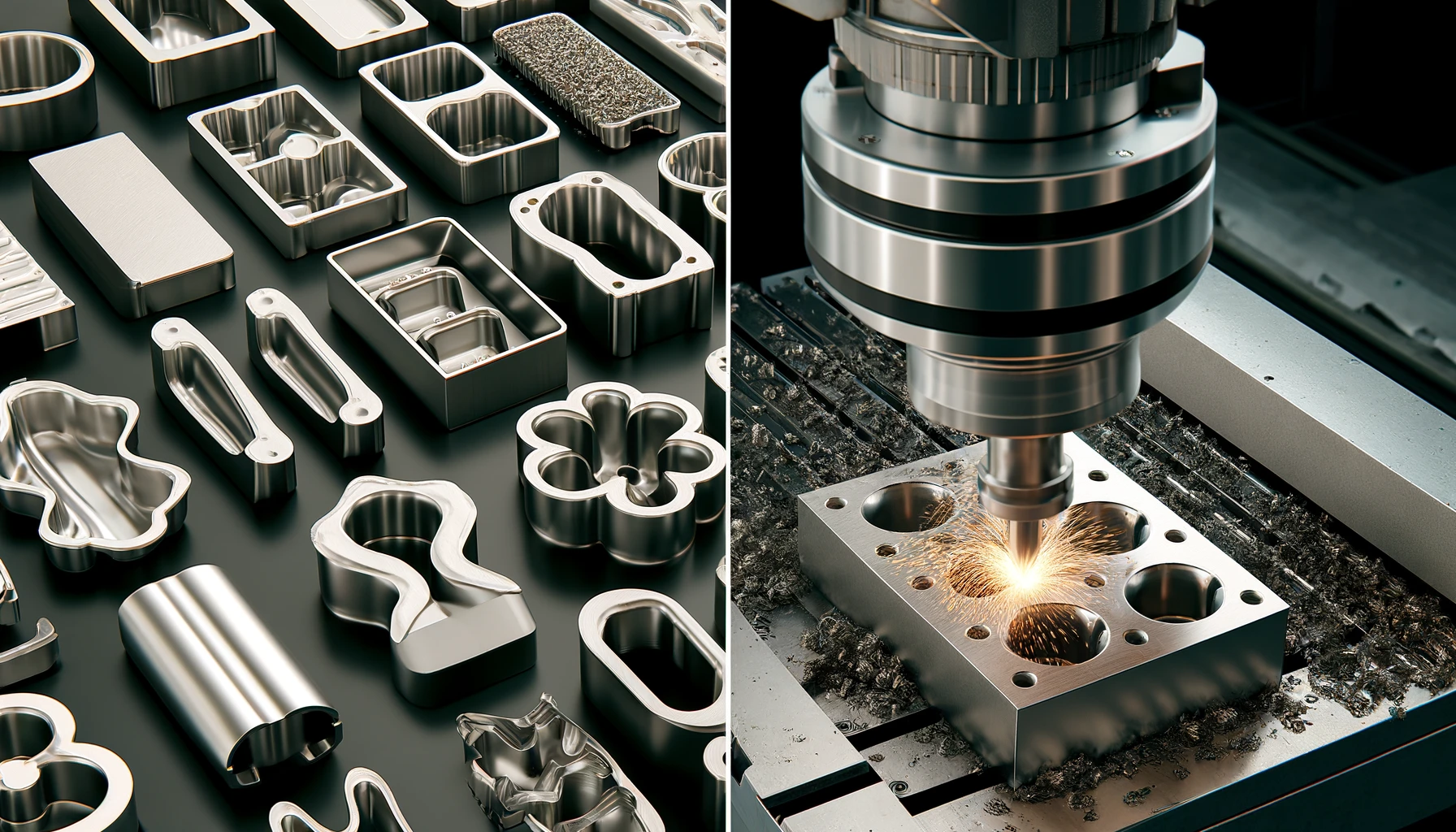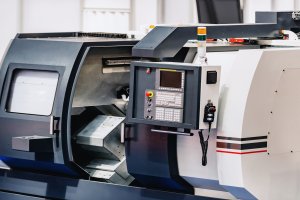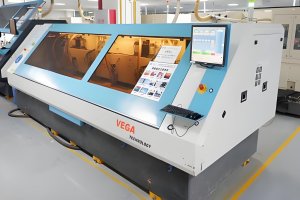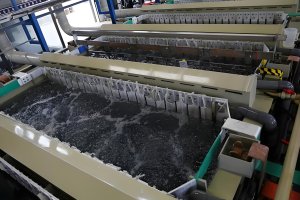Introduction
CNC (Computer Numerical Control) machining has revolutionized the manufacturing world with its precision and versatility, especially in producing complex parts for various industries. In the realm of food automation machinery, the use of CNC machining parts in molds plays a crucial role in enhancing production efficiency, ensuring product consistency, and adhering to strict hygiene standards. This article explores how CNC machining parts improve the performance of molds used in food automation machinery, addressing key technical challenges and innovative solutions.
What Materials are Best Suited for CNC Machining Parts in Food Automation?
Selecting the right materials for CNC machining parts is fundamental to the success of molds used in food automation machinery. The material choice impacts not only the functionality and durability of the mold but also the quality and safety of the food products produced.
Materials Commonly Used:
- Stainless Steel: Highly favored for its rust resistance and strength, crucial for food safety and mold longevity.
- Aluminum: Known for its light weight and excellent thermal conductivity, which helps in even cooling and heating during the molding process.
- Plastics: Certain food-grade plastics are used for less intensive applications, offering cost savings and flexibility.
- Brass: Offers good machinability and excellent thermal conductivity, suitable for non-corrosive environments.
- Titanium: Best for its high strength-to-weight ratio and corrosion resistance, ideal for demanding environments.
- Copper: Excellent thermal and electrical conductivity, used for components requiring frequent temperature changes.
Data Table: Material Comparison
| Material | Hardness (HV) | Durability (Years) | Cost (USD/kg) | FDA Compliance | Machinability |
|---|---|---|---|---|---|
| Stainless Steel | 700 | 10+ | 5 | Yes | Excellent |
| Aluminum | 250 | 5-7 | 4 | Yes | Good |
| Plastics | 100 | 2-3 | 2 | Yes | Varies |
| Brass | 300 | 5-6 | 3 | No | Excellent |
| Titanium | 900 | 15+ | 15 | Yes | Fair |
| Copper | 400 | 7-8 | 6 | Yes | Good |
This table provides a more comprehensive look at the materials used in CNC machining, helping manufacturers make better decisions based on their specific requirements.
How Do CNC Machining Techniques Affect the Accuracy of Mold Designs?
CNC machining offers unparalleled accuracy and repeatability, which are vital for the precision required in mold making. Advanced CNC machining techniques such as 5-axis machining allow for complex and intricate mold designs, which are often required in the detailed textures needed in food products.
Case Study: Precision in Pastry Molds
A leading pastry production company faced issues with their old molds which resulted in inconsistent pastry shapes. After switching to CNC machined molds, they not only achieved uniform product quality but also increased their production rate by 25%. The precise control over the mold design ensured that each pastry was identical in shape and size, enhancing consumer satisfaction and brand reputation.
What Are the Major Technological Challenges in Integrating CNC Machining Parts into Food Automation Molds?
Integrating CNC machining parts into molds designed for food automation machinery comes with its own set of technological challenges. These challenges stem from the need to maintain precision, durability, and compliance with food safety standards under the rigorous conditions of food production environments.
Key Challenges:
- Thermal Dynamics: Managing the heat distribution during the machining process to prevent material warping or distortion.
- Material Compatibility: Ensuring that materials used for CNC parts are compatible with those of the mold to avoid chemical reactions or contamination.
- Mechanical Stresses: Designing parts that can withstand the mechanical stresses of continuous production cycles without failure.
- Dimensional Stability: Ensuring the machined parts retain their dimensions over prolonged use under various temperatures.
- Surface Integrity: Achieving and maintaining a surface finish that meets the hygienic standards required in food production.
- Tool Wear: Managing the wear and tear on tools during machining, which can affect the quality and precision of the final product.
Data Table: Technological Challenges and Mitigation Strategies
| Challenge | Impact on Mold | Mitigation Strategy |
|---|---|---|
| Thermal Dynamics | Warping | Use of controlled cooling techniques |
| Material Compatibility | Contamination | Material compatibility tests |
| Mechanical Stresses | Breakage | Reinforced design structures |
| Dimensional Stability | Misalignment | Use of high-precision machines |
| Surface Integrity | Bacterial growth | Regular polishing and maintenance |
| Tool Wear | Reduced precision | Regular tool replacement and maintenance |
This table provides a deeper understanding of each challenge and its corresponding mitigation strategy, essential for maintaining high standards in mold manufacturing.
How Can CNC Machining Enhance the Lifespan of Molds in Food Automation Machinery? (Question Form)
The lifespan of molds in food automation machinery is critical for maintaining production efficiency and minimizing downtime. CNC machining plays a significant role in extending the life of these molds through precise manufacturing and the use of high-quality materials.
Factors Influencing Lifespan:
- Precision Fit: Reduces wear and tear by ensuring that all parts fit together perfectly.
- High-Quality Materials: Enhances resistance to degradation from repeated use and cleaning chemicals.
- Advanced Coatings: Application of protective coatings that prevent corrosion and material fatigue.
Data Table: Impact of CNC Machining on Mold Lifespan
| Machining Feature | Benefit | Lifespan Increase (%) |
|---|---|---|
| Precision Fit | Reduced Wear | 30 |
| Quality Material | Increased Durability | 50 |
| Protective Coating | Corrosion Resistance | 20 |
Through precise manufacturing processes and strategic material choices, CNC machining ensures that molds can endure the harsh conditions of food production for longer periods, thereby reducing the frequency of mold replacements.
Are There Cost-Effective CNC Machining Solutions for Small-Scale Food Producers? (Question Form)
While CNC machining offers numerous benefits in terms of precision and quality, the perceived high cost can be a barrier for small-scale food producers. However, there are several cost-effective CNC machining solutions that small operations can leverage to enhance their production without breaking the bank.
Cost-Effective Approaches:
- Modular CNC Systems: These systems offer flexibility and can be customized as per production needs, allowing small producers to invest in machinery that grows with their operations.
- Leasing Equipment: Instead of purchasing, leasing CNC machines can reduce upfront costs while still providing access to advanced technology.
- Shared Service Centers: Small producers can access CNC machining services through shared centers, reducing the need for individual investments in expensive equipment.
Case Study: Small Bakery Expansion
A small bakery in Boston wanted to expand their cookie production with custom molds. They opted for a leased CNC machine and designed specialized cookie molds that increased their production efficiency by 40% and allowed them to produce uniquely shaped cookies that stood out in the market.
How Does Surface Finishing in CNC Machined Parts Influence Food Safety and Compliance?
Surface finishing of CNC machined parts is crucial in food production as it directly impacts product safety and compliance with health regulations. The right surface finish ensures that the surfaces are free from crevices and roughness that could harbor bacteria, thus maintaining the hygiene standards required in food processing.
Importance of Surface Finishing:
- Smooth Surfaces: Minimizes bacterial growth by providing a surface that is easy to clean and sanitize.
- Enhanced Durability: Protects the parts from corrosion caused by frequent exposure to cleaning agents and food materials.
Data Table: Surface Finishing Techniques and Compliance
| Finishing Technique | Roughness (Ra) | FDA Compliance | Effectiveness | Cleaning Ease |
|---|---|---|---|---|
| Polishing | 0.4 µm | Yes | High | Very Easy |
| Coating | 0.8 µm | Yes | Medium | Easy |
| Anodizing | 1.2 µm | Yes | Medium | Moderate |
| Brushing | 1.5 µm | No | Low | Difficult |
| Blasting | 1.8 µm | No | Low | Difficult |
| Lapping | 0.2 µm | Yes | Very High | Very Easy |
This table provides a detailed look at how different surface finishing techniques affect the compliance and cleanliness of CNC machined parts, aligning with stringent food safety regulations.
How Are Innovations in CNC Machining Parts Driving Efficiency in Food Production Lines? (Question Form)
Innovations in CNC machining parts are at the forefront of driving efficiency and productivity in food production lines. With the advent of automation and smart technologies, CNC machining is becoming even more pivotal.
Recent Innovations:
- High-Speed Machining: Allows for faster production without compromising quality, significantly reducing cycle times.
- Smart Sensors: Integrated sensors in CNC machines provide real-time feedback, allowing for adjustments on-the-fly to maintain optimal performance.
- Robotics Integration: Robots can handle repetitive tasks such as loading and unloading CNC machines, streamlining the production process.
Case Study: Automation in Cheese Production
A cheese manufacturer implemented a new CNC system integrated with robotic arms to handle cheese mold production. The automation reduced human error, increased mold precision, and led to a 50% increase in production speed.
Conclusion
CNC machining has become indispensable in enhancing the performance of molds used in food automation machinery. By leveraging precise CNC technologies, manufacturers can ensure higher quality, increased productivity, and extended mold lifespan. Innovations in CNC machining drive the creation of more accurate and durable molds, tailored to specific production needs.
Looking ahead, the evolution of CNC technology promises to further improve efficiency and adaptability in food production. As the industry continues to evolve, the strategic implementation of CNC machining in mold design will play a crucial role in meeting changing consumer demands and stringent safety standards.
In essence, CNC machining is not just a technological improvement but a transformative approach that promises a future of higher quality and more efficient food production processes.
Other Articles You Might Enjoy
- Precision CNC Machining of Steel: High-Volume Production
Precision CNC Machining and High-Volume Production As an integral part of modern manufacturing processes, Precision Computer Numerical Control (CNC) machining brings about unmatched accuracy and consistency in the production of…
- What are the requirements for CNC machining of bearing parts?
Bearings are common and important parts in the automotive industry, which can support transmission components and transmit torque. Generally, CNC machining centers are used to process bearing parts. So what…
- What Makes Chinese CNC Machining Ideal for Producing Food Automation Machinery Shafts
Introduction to CNC Machining in China China's prowess in manufacturing has grown significantly, with CNC machining at the forefront of its industrial capabilities. CNC (Computer Numerical Control) machining is a…






